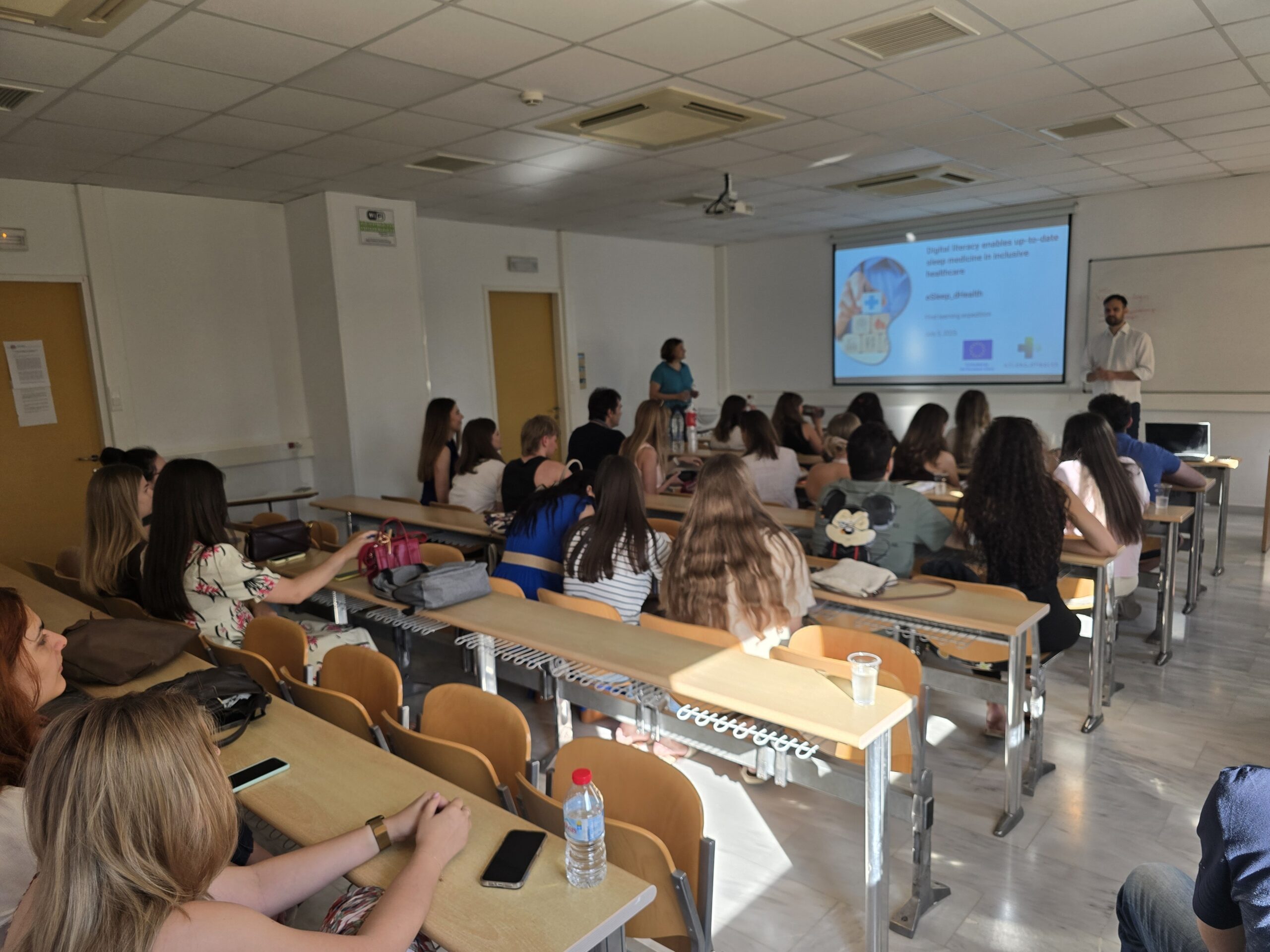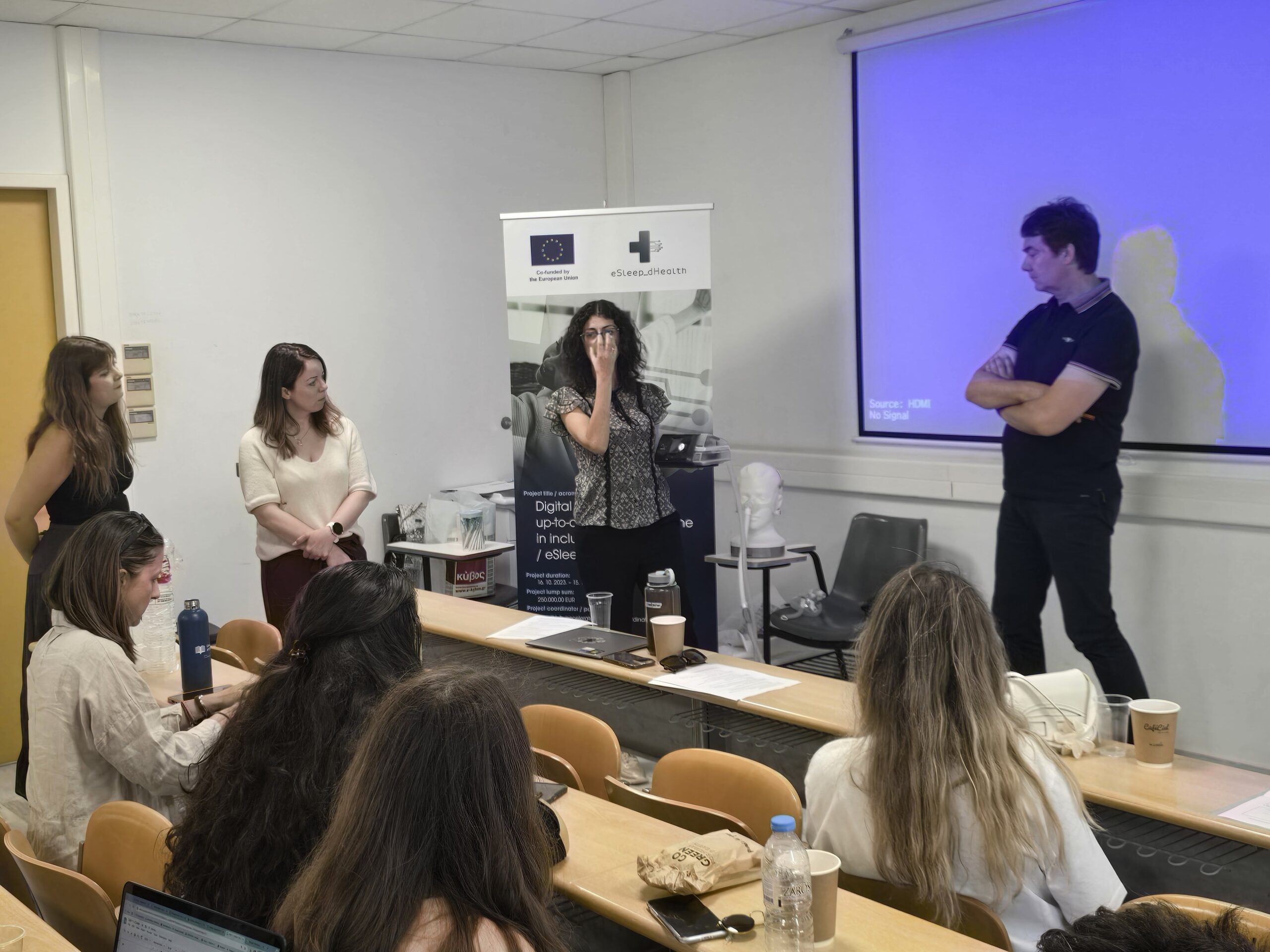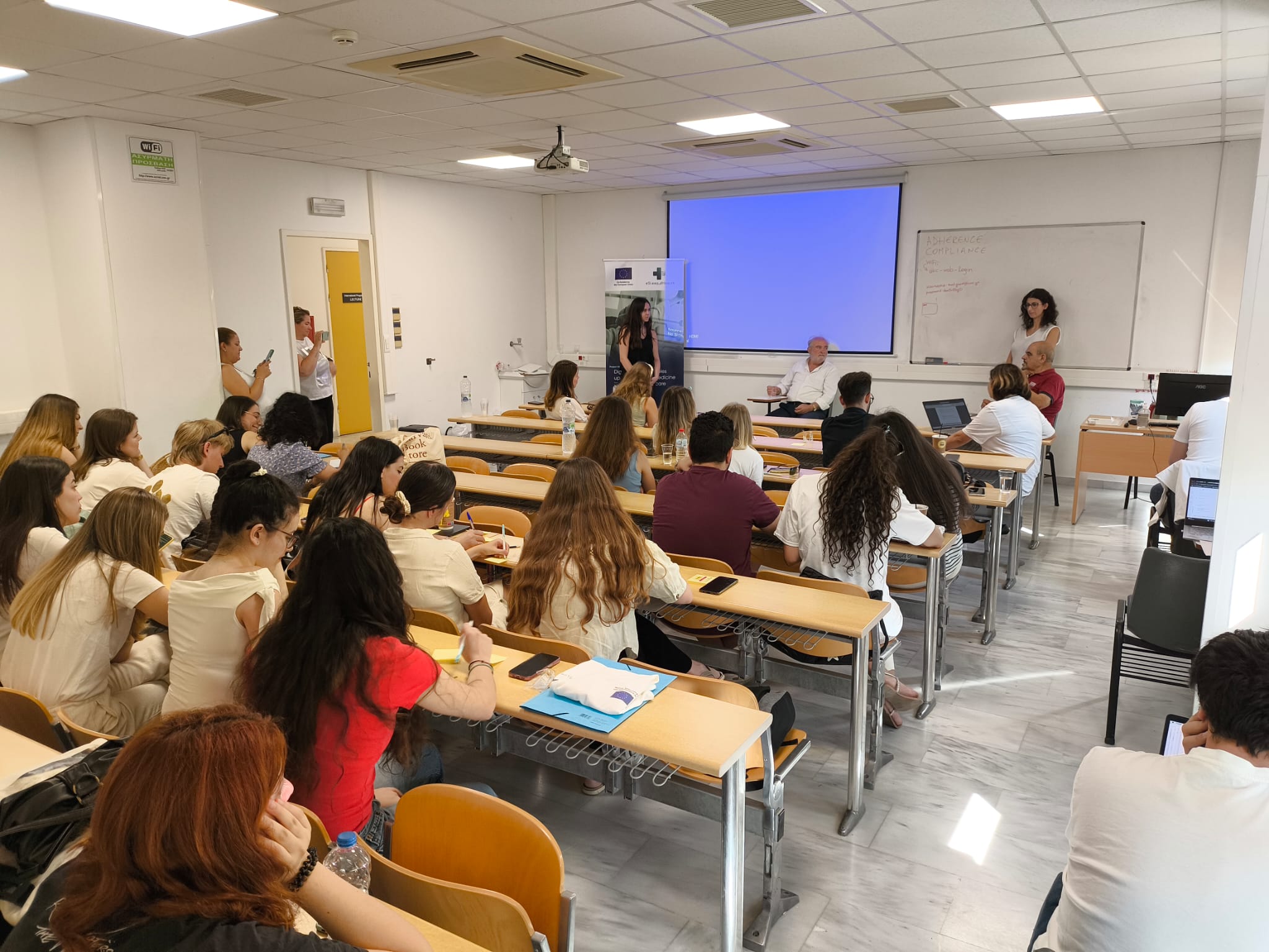Students from Three Countries Join Forces in Crete to Tackle Sleep Apnea Challenges



From July 3 to 7, 2025, the city of Heraklion became the hub of innovation in sleep medicine as the First Learning Expedition of the eSleep_dHealth project took place at the University of Crete.
During five dynamic days, 24 students from the University of Split, University of Crete, and Reykjavik University were immersed in a real-world innovation experience. Divided into six international teams, they applied their knowledge from the eSleep_dHealth online course to co-create solutions that respond to a pressing issue in sleep medicine: How to improve CPAP therapy adoption at home among patients with sleep apnea
Day 1: Understanding the Problem, Getting Ready to Innovate
The first day was all about setting the stage for meaningful innovation. Students were welcomed by the team from NetHub, who introduced the programme and shared what to expect in the days ahead.
 Then, the central challenge the students would be working on was introduced: Increasing CPAP therapy compliance at home – a persistent and often underestimated issue in treating sleep apnea.
Then, the central challenge the students would be working on was introduced: Increasing CPAP therapy compliance at home – a persistent and often underestimated issue in treating sleep apnea.
To provide a deeper understanding of the medical and patient perspective, students attended a session led by a panel of sleep medicine and digital health experts. These engaging discussions gave students key clinical insights into the barriers patients face, from discomfort and lack of information to social stigma. This knowledge became the foundation for their work in the following days, as they prepared to apply design thinking to co-create user-centered solutions.
Day 2: Walking in the Patient’s Shoes
Day two was all about empathy and definition. Under the guidance of NetHub mentors, students conducted in-depth interviews with two patients living with sleep apnea and using CPAP therapy.

These conversations helped students see the issue from a new angle – directly through the eyes of the patient. They listened to personal stories, which helped them identify emotional and practical challenges that go beyond clinical definitions.
The teams then participated in the “How Might We” activity, where they transformed insights from interviews into clear and focused problem statements. This exercise helped each group define the specific aspect of the challenge they would address. By the end of the day, teams agreed on a shared goal: To develop a community support system that helps patients overcome early challenges in using CPAP therapy.
Meanwhile, project partners gathered for a Partner and Steering Committee Meeting to align on progress and plan next steps in the project.
Day 3: From Ideas to Prototypes
With a deep understanding of the problem, students moved into the Ideate and Prototype phases.
They started the day with the User Journey Map – a powerful tool that helped them visualize each step of the patient’s experience and pinpoint exactly where interventions could make a difference.

Armed with ideas, they got hands-on and began prototyping their solutions, followed by the first drafts of their pitch presentations. Teams worked independently, but with the continued support of NetHub mentors, turning patient insight into tangible innovations
Day 4: Testing with Real Users
On day four, it was time to test. Students met again with the patients they interviewed on day two and walked them through their prototypes. This real-world feedback loop helped teams refine their ideas and confirm whether their proposed solutions truly addressed user needs. They quickly identified what worked, what didn’t, and what needed to be improved.
In the afternoon, teams worked closely with NetHub experts to fine-tune their pitch presentations ahead of the final day.
Day 5: Presenting Ideas, Kicking Off the Next Phase
The final day of the Learning Expedition was all about sharing, reflecting, and looking ahead.
Each team presented their solution to a panel of professors from all three universities. They answered questions, received feedback, and celebrated the hard work that had gone into a challenging but rewarding week.
With that, the eSleep_dHealth course officially came to a close – but the next phase was just beginning.
Next Stop: The Social Innovation Incubator
Students were introduced to the upcoming Social Innovation Incubator, which consists of two parts:
☁️ Summer in Cloud
Second Learning Expedition (September 22–26, 2025, Split)
The new challenge was presented: Raising Awareness of Sleep Apnea. Many individuals with sleep apnea go undiagnosed – often it’s a family member who first notices the signs. Students are now asked to develop a digital solution to raise awareness, helping people recognize symptoms and seek timely medical help.
During Summer in Cloud, students will research this issue and create a Opportunity Analysis Report – the foundation for their next design thinking project.
At the Second Learning Expedition in Split, they will develop their ideas further in a competitive format, culminating in a Demo Day where a jury will select the winning project
The Journey Continues
The First Learning Expedition showcased what happens when students, mentors, and experts come together across borders to tackle real healthcare challenges. With the next phase on the horizon, this group of future innovators is more prepared than ever to turn insight into impact.
To read more about the project visit:
Funded by the European Union. Views and opinions expressed are however those of the Mediterranean Economic Foresight Institute only and do not necessarily reflect those of the European Union or the Agency for Mobility and EU Programmes (AMEUP). Neither the European Union nor AMEUP can be held responsible for them.






